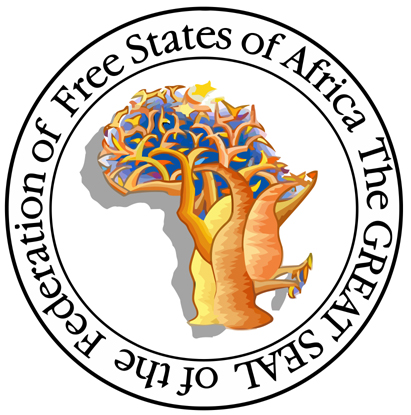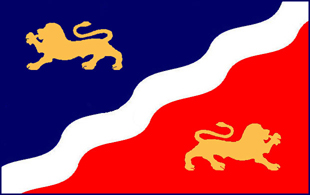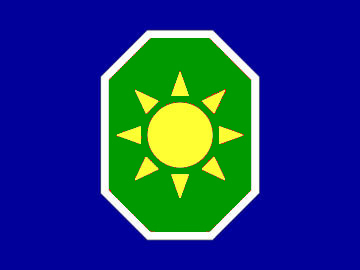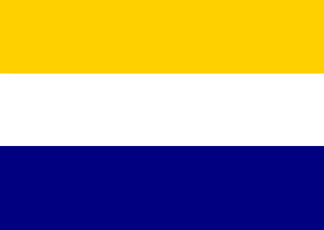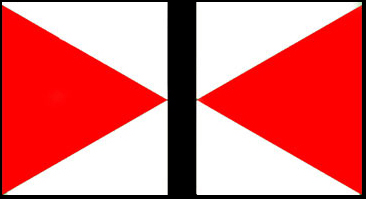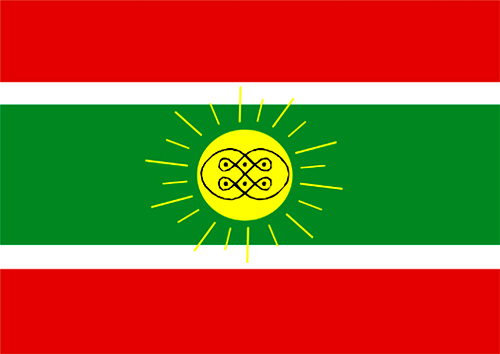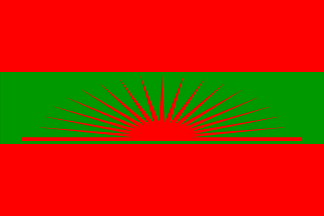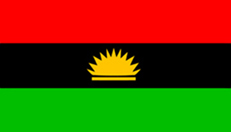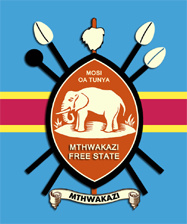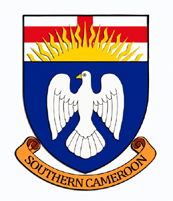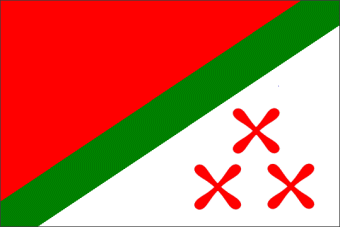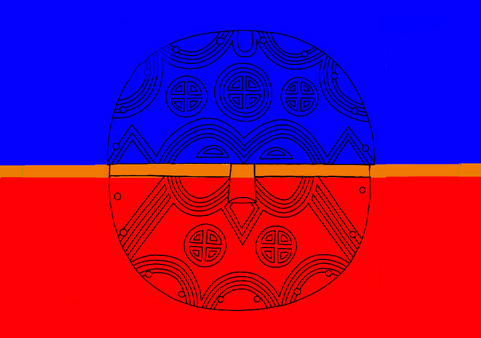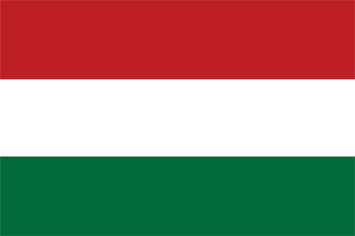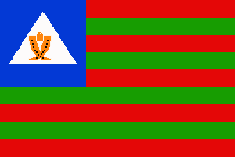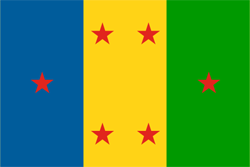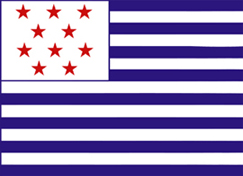International Laws on
Self-Determination
The right to self-determination — which
allows people to secede from a mother state if they so choose — appears in
various international conventions, including the founding document of the
United Nations.
International Law
Dealing with Self-determination and Territorial Integrity
U.N. Founding Charter (Article 1) — 1945
• One purpose of the United Nations is “to develop friendly relations among
nations based on respect for the principle of
equal rights and self-determination of peoples, and to take other
appropriate measures to strengthen universal peace.”
U.N. Resolution 2625 — 1970
• “Every State has the duty to refrain from any forcible action which
deprives peoples referred to in the elaboration of
the principle of equal rights and self-determination of their right to
self-determination and freedom and independence.”
• “Nothing in the foregoing paragraphs shall be construed as authorizing or
encouraging any action which would dismember,
or impair, totally or in part, the territorial integrity or political unity
of sovereign and independent states conducting
themselves in compliance with the principle of equal rights and
self-determination of peoples and thus possessed of a
government representing the whole people belonging to the territory without
distinction to race, creed or colour.”
African Charter on Human and Peoples’ Rights (Article 20) —
1981
• “All peoples shall have . . . the unquestionable and inalienable right to
self-determination. They shall freely determine
their political status and shall pursue their economic development according
to the policy they have freely chosen.”
Conference on Security and Co-operation in Europe’s Charter
of Paris for a New Europe — 1990
• “We affirm that the ethnic, cultural, linguistic and religious identity of
national minorities will be protected.”
• “We reaffirm the equal rights of peoples and their right to
self-determination in conformity with the Charter of the
United Nations and with the relevant norms of international law, including
those related to territorial integrity of states.”
Vienna Declaration and Program of Action adopted by World
Conference of Human Rights — 1993
• The conference recognizes “the right of peoples to take any legitimate
action, in accordance with the Charter of the
U.N., to realize their inalienable right of self-determination.”
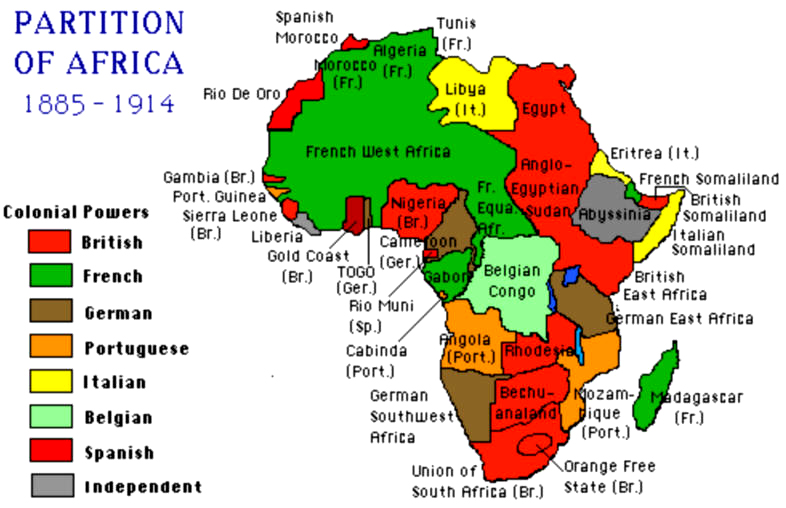
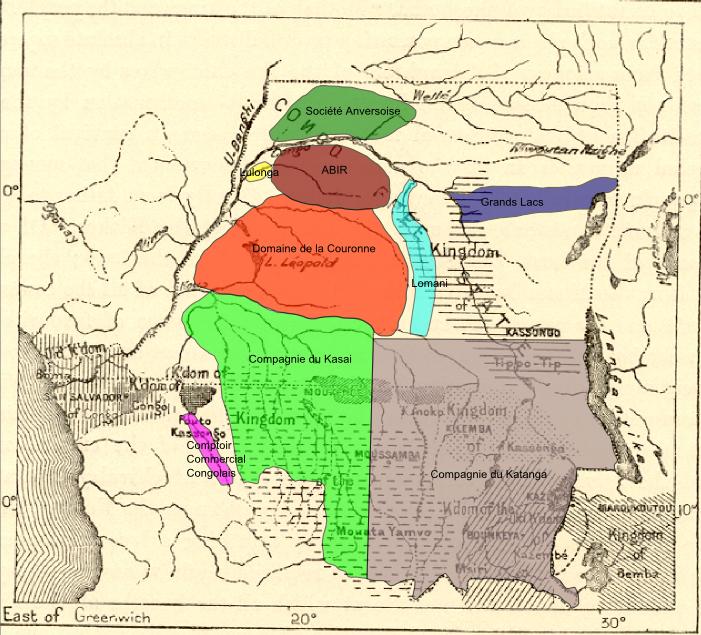
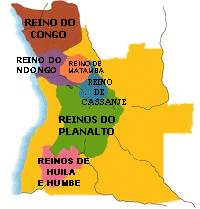
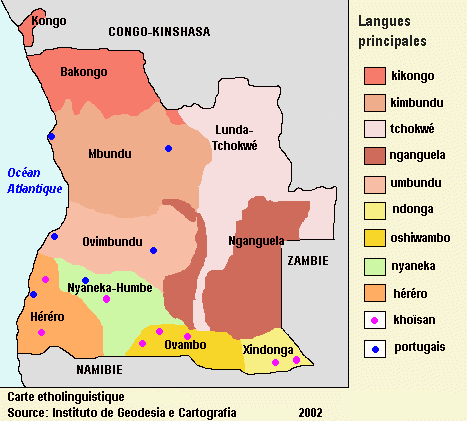
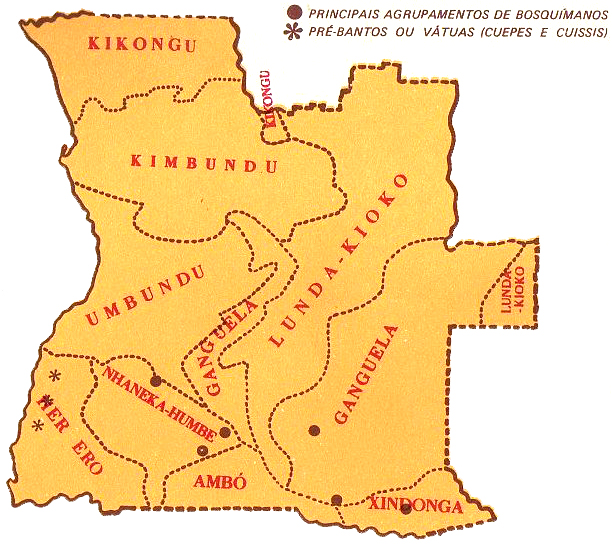
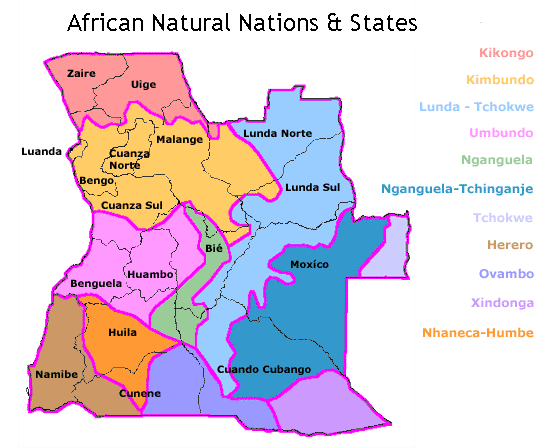
Company of Angola
The Area controlled by the
Company of Angola witnessed huge changes in the last quarter of the 18th
century; the size of the province grew immensely as a result of the
continued movement inland. The movement inland was not without opposition
and the Portuguese found themselves in a constant state of war with the
Kingdoms of Mbundu and Matamba in the African interior highlands until
the last remained resistance to the Portuguese forces was destroyed in 1793.
The new territory not only greatly increased the territory under Portuguese
administration but also provided huge economic opportunities to the
“Companhia de Angola”.
At the beginning of Dom José II reign the Portuguese had established
themselves securely all along the coast from the Congo River in the north to
the Cunene River in the south. The Mbundu and Matamba Kingdoms in the
interior of the African Continental highlands opposed the Portuguese
expansion inland along the four main rivers.
Over the preceding 20 years these Kingdoms had received many refugees from
the previous Portuguese expansions and as they came into contact with the
Portuguese had become increasingly hostile.
The Portuguese used over 20,000 colonial forces throughout the province of
Angola both in the initial conquest of the highlands and interior as well as
the subsequent revolts from 1786 to 1793. The constant state of conflict as
well as mass deportation as a result of the military actions resulted in
over 60 percent reduction in the population of the interior.
The most difficult part in administering and developing the new territory
was the lack of proper communication and transportation. The rivers of
Congo, Cuanza, Cuvo and Cunene became the primary means of transportation
and communication. Thousands of the people captured during the military
actions were used as forced labourers in the construction of canals and
roads along the four rivers.
The discovery of gold and especially iron deposits in the interior starting
in 1788 provided the economic incentives and funds for these huge projects.
Large number of Luso-Índians, Timorenses and subsequently Macaenses along
with Europeans (both from Portugal and other countries) moved to these
territories. The combination of reduction in African population and huge
immigration resulted in the population of non-Africans in the province of
Angola reaching 30 percent of the overall population by 1800.
New plantation including coffee, cotton and other agricultural products were
either started or expanded. The export of lumber to other Portuguese
provinces and England also increased. In 1798 several ore refineries were
started along the coast to process the iron ore being shipped from the
interior.
The Portuguese Catholic Church continued its expansion and evangelization
throughout the province both to the remaining Africans as well as the new
immigrants. The subjugation of the natives in many cases had been so brutal
that the Catholic Church was forced to establish over 100 missions and
orphanages to help the locals.
The Church encouraged the single men who had immigrated to Angola to marry
the widows and provide a home to the orphans in its care. The church’s stand
along with government support convinced many men to marry and providing the
widows and orphans with a second home.
The rapid expansion both economically as well as population put severe
strains on the “Companhia de Angola”. The Companhia did not have the means
or funds to develop and administer all of the resources in the province.
New enterprises, private factories, plantations and farms sprung up all over
the province. In 1797 the companhia turned over all infrastructure projects
to the government in return for large tax breaks and concessions.
It concentrated on economic and commercial interest only and left all
administration to the government. In 1799 the companhia only accounted for
50 percent of all economic activity in Angola as opposed to 70-90 percent in
other parts of the empire, but even then it still was the largest and
richest companhia in Africa.

Findings
by Harvard University Political Scientists
Demonstrate the chaotic state which we African Nation have been placed in.
"A Society that is multicultural creates
mistrust among neighbours which damages community spirit. People living in
a mixed ethnic society have fewer close friends and watch more TV. This contributes
to a withdrawal from collective life." - Harvard University
"State multiculturalism has
failed"
- The Rt Hon David Cameron
Of course multiculturalism
is bound to fail. A Nation can only be a Nation if all are singing from the
same "Chorus Book", if not then there is no harmony. That is plain and
simply obvious. We don't need Einstein to point that out, plain common sense
can see what is obvious. So then, it begs the question, how are we
expected to keep "Colonial Marked Border States" in harmony?
- The Rt Hon Mangovo Ngoyo

FFSA
Federation of
the Free States of Africa
FFSA SENIOR STAFF OFFICERS
Secretary General
Rt Hon Mangovo Ngoyo
Deputy Secretary General
Rt Hon Michael Johnson
Email: [email protected]
www.africafederation.net
Legal Notice
2007-2017 © Federation of Free States of Africa
Africa Federation , Federación
Áfricana , Afrika Federation , 아프리카
연맹 , Afrika Föderation , Afrikka liitto ,
アフリカ連合 , Afrika Federatie ,
Африка
Федерации , Fédération
Afrique , África Federação
